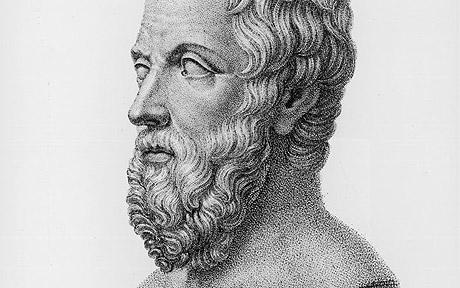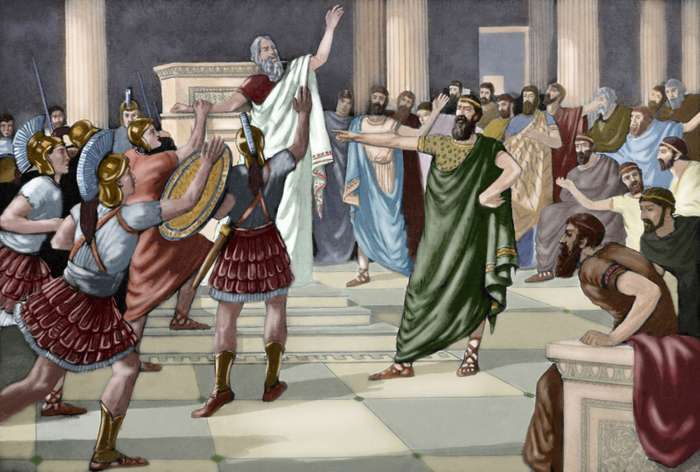Tag Archives: Herodotus
By Ben Potter, Contributing Writer, Classical Wisdom What springs to mind when we think about literature of the Ancient World? Maybe it’s Homer’s Achilles dragging the corpse of Hector around Troy or Sophocles’ Oedipus stabbing out his polluted eyes. Perhaps it’s Plato’s Socrates holding forth or Herodotus’ Leonidas and his 300 Spartans. It even might
Herodotus’ Giant Ants
by Cam Rea, Contributing Writer, Classical Wisdom Earlier this week I came across a quote by Herodotus on Classical Wisdom’s Facebook page. The main theme was “giant gold digging ants.” Sounds fanciful, right? Well, behind every myth is a general truth, and that is something I think we all can agree on. Herodotus states in
That Time Heracles Met Snake Woman…
By Carly Silver, Contributing Writer, Ancient Origins While completing his Twelve Labors, the Greek hero Heracles (a.k.a. Hercules) got up to tons of mischief—and that included bedding a lot of women. In the process, he fathered a whole host of legendary sons, called the Heracleidae, from whom many clans across the Mediterranean claimed descent. According
Herodotus Proved Right! Nile Shipwreck Vindicates the Greek Historian’s Wild Claims… About a Boat.

In 450 BCE, Herodotus wrote about a specific sort of cargo boat that he saw along the Nile, which, until now, no one believed existed. Historians and archeologists were doubtful about Herodotus’ description of the ship because they had never seen any evidence…and indeed, while he is known as the “father of History”, many of
Thucydides Vs Herodotus: Which Historian Wins?
By Ben Potter There has been a great deal of focus on the differences between Herodotus and Thucydides. Both men have been granted the ‘father of history’ accolade, but chronologically Herodotus must be the winner of the distinction as Thucydides picks up where he leaves off. For those in need of a quick recap, Herodotus
The Times of Tyranny

By Ben Potter The lead-up to the Second World War was often referred to (in its own time) as the Age of the Great Dictators. The idea being that, even though the fledgling American experiment was going rather well, not all democracies were pulling their weight in the war of ideologies. Emerging dictatorial talents in








